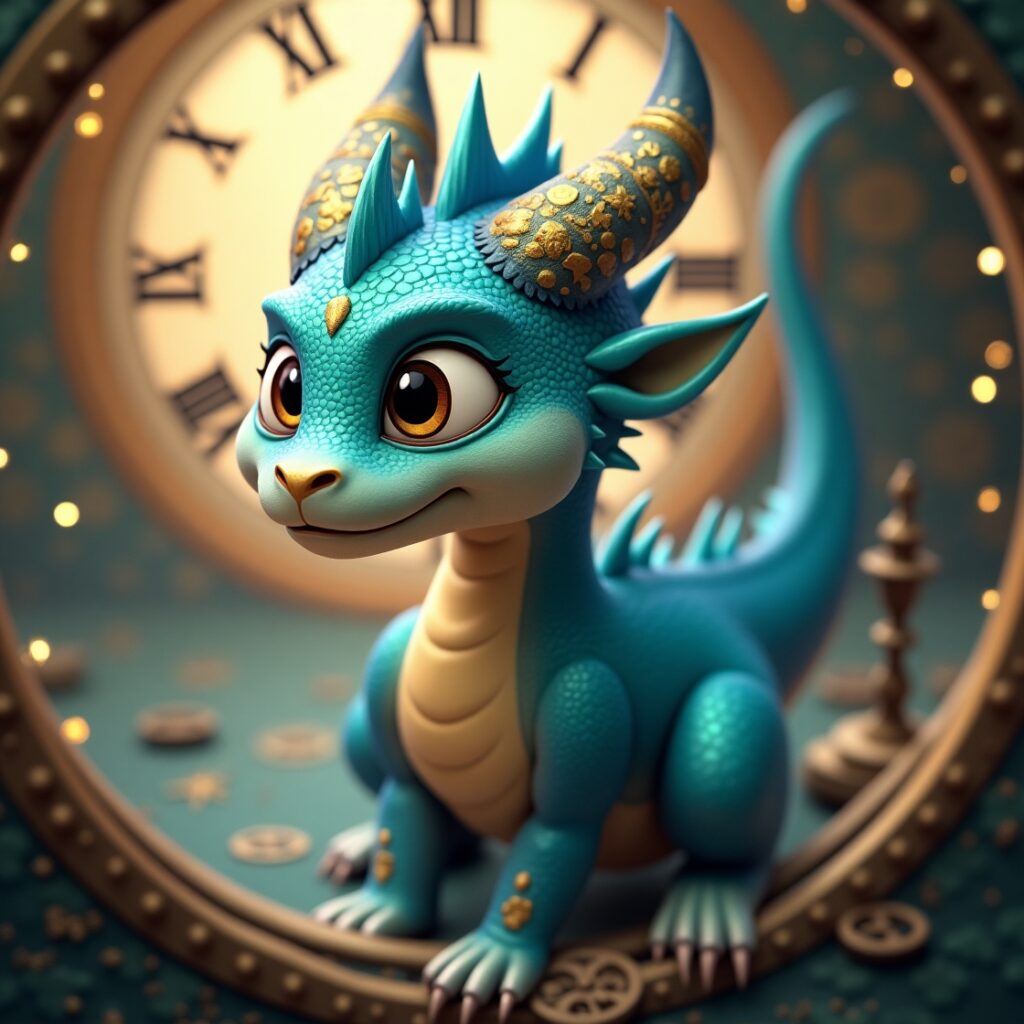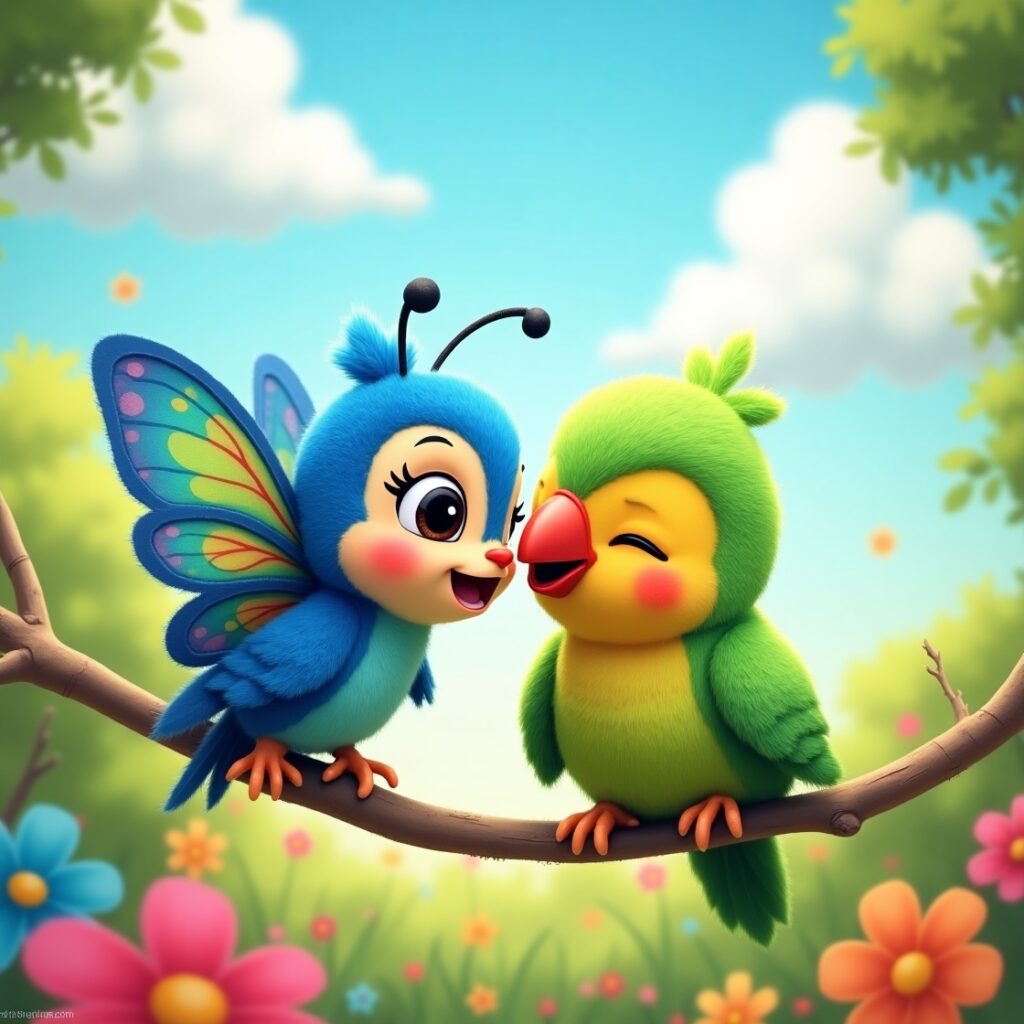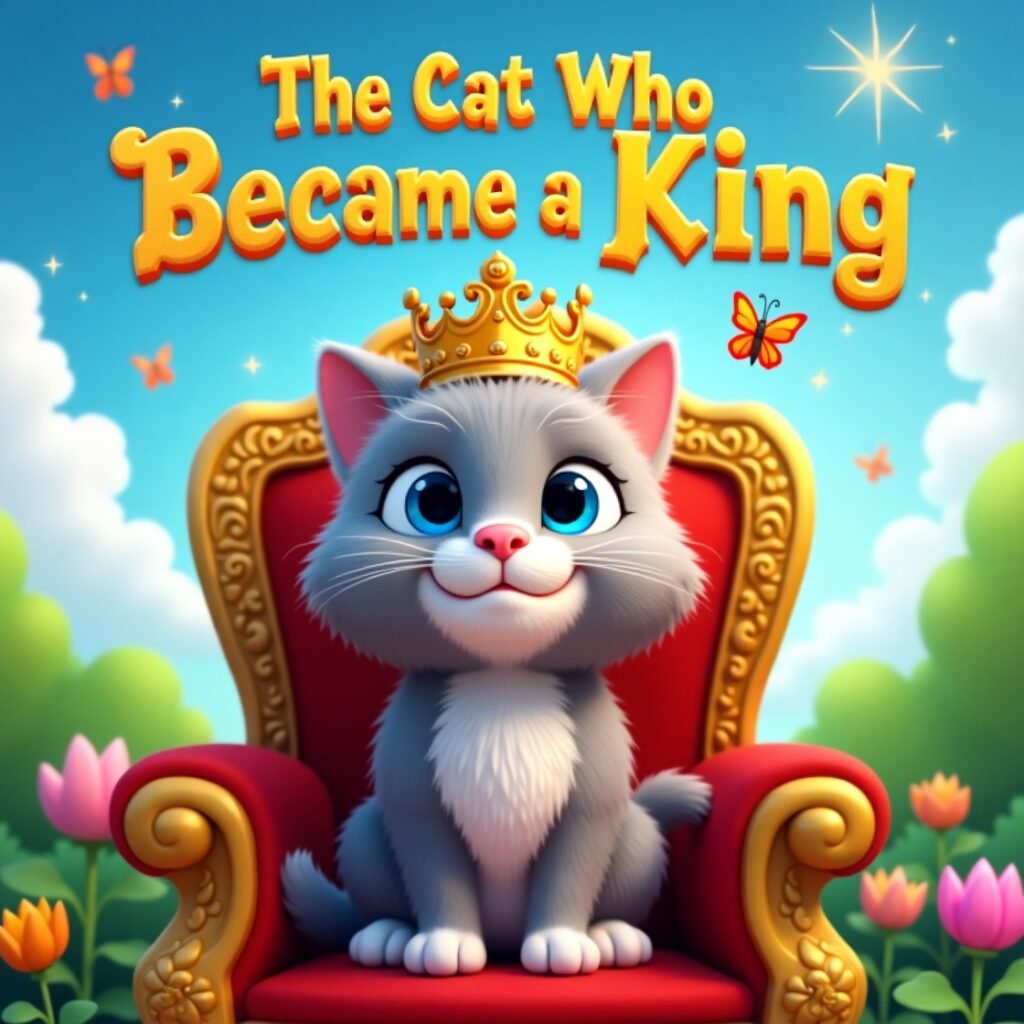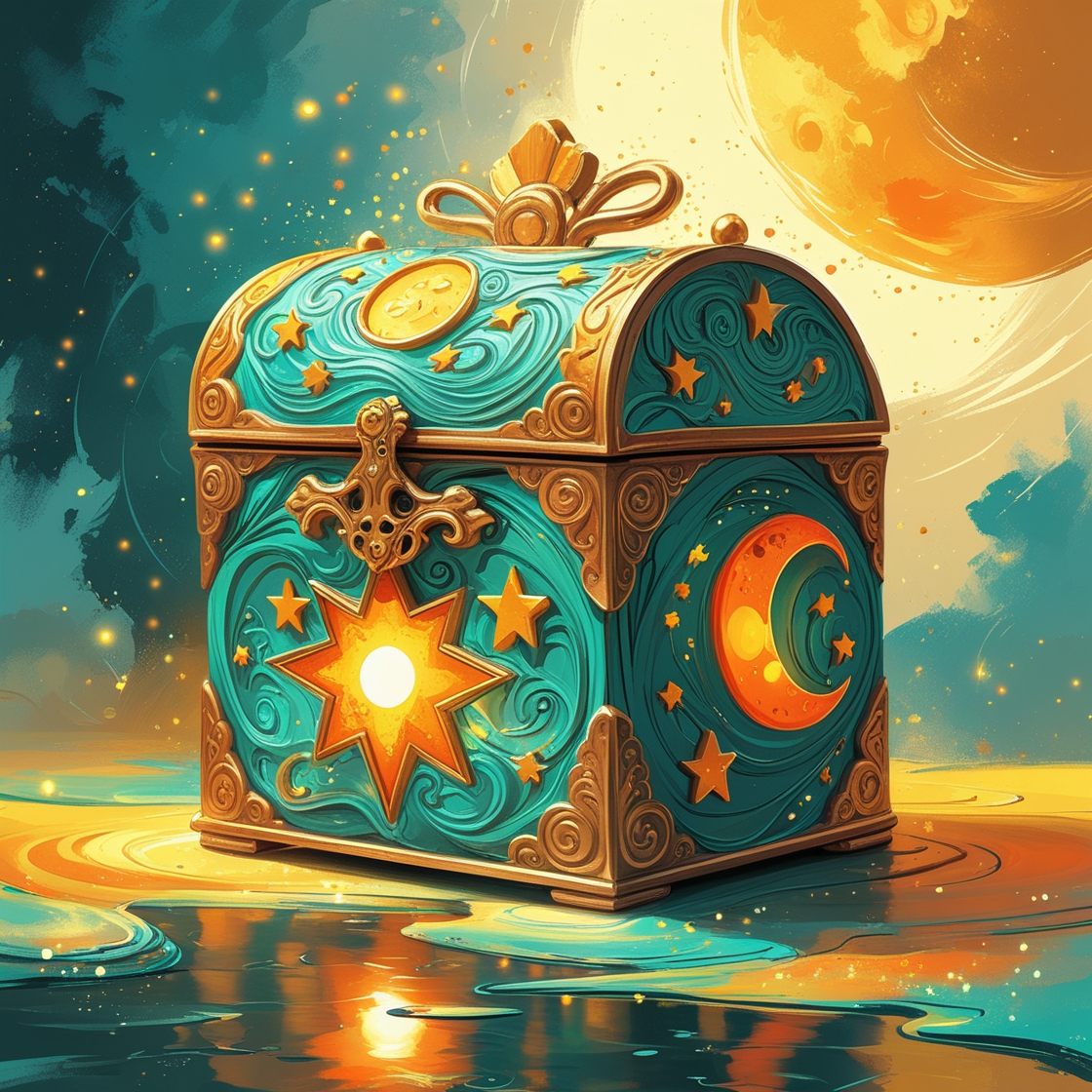These timeless magic stories do more than entertain they shape imagination, teach gentle life lessons, and invite readers of all ages to believe in wonder again. Explore more of this mood and theme in our Magical Stories collection or pick age-focused reads like Journey to Dreamland: Magical Bedtime Tales for Toddlers for younger listeners. If you’re curious about the genre’s roots and how classic fairy tales continue to shape contemporary storytelling, see Britannica’s overview of the fairy tale and browse original collections such as Grimm’s Fairy Tales at Project Gutenberg for historical context and inspiration.
Universal Appeal of Magic Stories
Magic stories are not just for kids adults love them just as much. For kids, these stories are a dream world where anything is possible a flying magic broom, a talking animal, or a small tree can do great things. These stories make their imagination even more colourful.
Beyond Reality in Magic Stories
The great thing about magic stories is that they take us to a world that is not real but feels very real to the heart. When we read a magic story, we are not just looking at the words we live in that world. We are accompanying a wizard to his school, or talking to
a talking lion in a jungle. These stories take us away from the tensions of real life, homework, or the office to a place where imagination is the ultimate power.
Common Themes in Magic Stories
- Good vs. Evil
- The Hero’s Journey
- Transformation
- Magical Creatures
- The Power of Belief and Imagination
Why Magic Stories Matter
- Encourage creativity and imagination.
- Teach moral values and life lessons.
- Offer escape from reality and help cope with challenges.
- Foster curiosity and a sense of wonder in both children and adults.
Elements That Make a Great Magic Story
- A relatable hero/heroine
- A magical challenge or quest
- Enchanted settings
- Surprising twists
- A strong moral or emotional core
1.The Star Whispers of Liora
Theme: Magic, Courage, and Self-Belief

In the peaceful village of Duskvale, where the skies always looked cloudy and gray, lived a curious little girl named Liora. She was no older than ten, with tangled brown hair, wide eyes full of wonder, and a voice as soft as the breeze that whispered through the trees.
While other children played with spinning tops and marbles, Liora spent her time lying on the grassy hills outside the village, staring at the sky. But it wasn’t just a habit. She believed the stars hidden behind the clouds were trying to talk to her.
The villagers called her strange. “Stars don’t talk,” they’d say with a laugh. “They’re just tiny lights in the sky.” But Liora didn’t believe that. She felt a connection, something magical pulling her heart toward the heavens.
Then one year, something terrible happened. A long, dry summer drained the rivers, withered the crops, and turned the soil to dust. The villagers prayed for rain, but none came. People began to lose hope.
That night, as Liora lay in bed, something extraordinary occurred.
A soft golden glow lit up her room. Floating above her was a tiny, sparkling star, no bigger than a teacup. It twinkled gently and whispered, “Liora, the time has come. The rain crystal sleeps beneath the Old Willow Tree. You must find it before the final moon wanes.”
She sat up, blinking in disbelief. “Who are you?”
“I am Orin, a Star Whisper,” said the tiny being. “Only a few in the world can hear us—and you are one of them.”
With no time to waste, Liora packed a small satchel with bread, a blanket, and her lucky pebble. Before dawn, she tiptoed past sleeping villagers and set off toward the forest, guided by Orin’s soft glow.
The path was not easy. First, she came to a clearing guarded by three ancient owls perched on stones. They spoke in riddles:
“To pass, a truth must you speak,
About yourself, humble yet unique.”
Liora thought hard. Finally, she said, “I hear things others don’t. People think I’m odd. But I think it’s special. I think it’s magic.”
The owls nodded, flapped their wings, and the path opened.
Next, she encountered a sly fox made of shimmering stardust. He offered her a deal: “Give me your lucky pebble, and I’ll tell you exactly where the crystal lies.”
She looked at the pebble, a gift from her grandmother. It reminded her of home, love, and strength. “No,” she said softly. “I’ll find the way myself.”
The fox smiled, fading into the mist. “Wise choice, child.”
Finally, she reached the Old Willow Tree its branches drooping like tired arms. Beneath it was a circle of stones. In the center, a patch of moss shimmered faintly. Liora knelt, dug with her hands, and unearthed a glowing crystal the size of an apple, pulsing with soft blue light.
She held it up as Orin danced around her. “You did it, Now take it to the Heart of the Village before the final moon sets.”
As Liora raced back, the wind howled and storm clouds began to gather drawn to the crystal’s magic. She stood in the village square, lifted the crystal high, and shouted, “Let the skies hear us.”
A bolt of light shot upward. Thunder roared. Then, RAIN.
Soft at first, then heavy and warm. People cried, laughed, and danced in the downpour. The drought was over.
From that day on, Liora wasn’t just “the odd girl who talked to stars.” She became Duskvale’s Star Listener, honored with a golden telescope and her own place beneath the village’s tallest tower.
Children listened to her stories. Adults asked her advice. But Liora always reminded them of one thing:
“The stars are always speaking we just have to believe we’re worthy to hear them.”
Moral: Believe in yourself, even when others doubt you.
2.The Enchanted Paintbrush
Theme: Magic, Kindness, and Purpose

In a dusty little village surrounded by golden hills and cracked roads, lived a boy named Amir. He was ten years old, with curious eyes, nimble fingers, and a heart filled with quiet dreams. His family didn’t have much just a small cottage with squeaky floorboards and a patch of land where weeds grew faster than vegetables.
Amir had one great love: painting.
He would draw on scraps of paper, on old wooden fences, and even in the dirt. He didn’t have real paints or fancy brushes, so he used berries for color, feathers for brushes, and leaves for canvas. Even though his art was beautiful, most people paid no attention. “Painting won’t fill your stomach,” they’d say. “Why waste time on something so useless?”
But Amir didn’t listen. He believed that color and imagination were as important as bread and water.
One day, while exploring the attic of an old, abandoned schoolhouse, Amir stumbled upon a strange wooden box buried beneath cobwebs and broken chairs. Inside was a paintbrush its handle carved with stars and moons, and its bristles shimmering like silver thread.
The moment Amir touched it, he felt a warm energy hum through his fingers. He dipped the brush into a puddle of muddy water on the ground and painted a loaf of bread on the wall. As soon as he finished the final stroke, something incredible happened.
The bread peeled off the wall… and turned real.
Amir gasped. He painted a bowl of apples real. A blanket real. A flower in a vase real.
He rushed home, and for days, he painted everything he had ever dreamed of new shoes for his little sister, a soft rug for his mother, a kite for his baby brother. The small cottage filled with color, comfort, and joy.
But then Amir looked out the window. He saw hungry neighbors with empty plates. Children playing with broken toys. Elders sitting outside on cold stones. And Amir’s joy faded.
“They need magic more than I do,” he whispered.
So the next day, he walked through the village with his enchanted brush. He painted fresh bread on walls for the hungry, cozy coats for the cold, toys for the little ones, and books for the curious. Each time he finished a painting, it came to life real, warm, and useful.
The village began to change. Smiles returned. Laughter echoed through the streets. People started helping each other again, not just waiting for magic, but inspired by Amir’s kindness.
But not everyone was happy.
In the town square lived a rich and greedy merchant named Kazim. He had the biggest house, the fattest oxen, and the most servants. But he was never satisfied. When he heard about Amir’s magical brush, he wanted it for himself.
He summoned the boy.
“Paint me a palace with golden towers,” Kazim ordered. “A horse made of diamonds. A lake of honey.”
Amir frowned. “The brush is not meant for greed. It only works when the painting comes from kindness.”
Kazim snarled. “Then you’ll give it to me, boy. Or else.”
That night, Kazim sent his guards to steal the brush from Amir’s home. But no matter how hard they tried, the brush refused to paint for them. It shivered and stiffened like a frozen twig. The next morning, it flew from Kazim’s hand and returned to Amir on its own.
Furious, the merchant trapped Amir and demanded he paint a grand treasure room or be banished from the village. Amir was afraid, but he had an idea.
He agreed. On the back wall of Kazim’s house, Amir painted a giant, golden bird with wings like sunrays. When he finished the last stroke, the bird blinked, stretched its wings, and let out a long, echoing cry.
Then it scooped up Kazim, who screamed in surprise, and soared high into the sky, flying far away toward the desert mountains.
The villagers watched in stunned silence.
Then they erupted into cheers.
From that day forward, Amir continued to use his enchanted brush not to paint riches or castles, but to make life better one picture at a time. He taught children how to draw from the heart and reminded everyone that the real magic was not the brush but the intentions behind it.
Years later, when Amir was older, he opened the first art school in the region not just to teach painting, but to teach hope, kindness, and creativity.
And the brush?
It still rested on his desk, waiting for the next child who would use it wisely.
Moral: Use your talents to help others, not just yourself.
3.The Forest of Forgotten Dreams
Theme: Magic, Dreams, and Courage

Once upon a time in the little town of Greendale, there lived a girl named Mina. She was nine years old and loved to dream. While other children thought about toys or games, Mina’s mind danced with bigger, brighter things.
She dreamed of building floating houses in the sky. She imagined becoming friends with talking dolphins. She saw herself dancing on clouds and writing books made of sunlight. She filled notebooks with colorful sketches of unicorns, dragon-libraries, and rainbow bridges.
But not everyone appreciated her imagination.
“Stop daydreaming,” her teacher would say.
“Grow up,” her aunt scolded.
“Dreams don’t feed you,” the villagers often muttered.
Eventually, Mina began to hide her dreams. She stopped drawing. She stopped writing stories. She smiled less. And one rainy evening, with her notebook closed and heart heavy, she wandered alone into the woods behind her house.
That’s when everything changed.
A rustling in the bushes startled her. A silver rabbit with sapphire eyes hopped out, wearing tiny spectacles and holding a glowing scroll. He introduced himself as Jinx.
“You’ve entered the edge of the Forest of Forgotten Dreams,” he said, bowing. “It’s where all the dreams people give up on come to live… until they fade forever.”
“Dreams can fade?” Mina asked, her voice shaking.
Jinx nodded. “When children stop believing in their dreams, those dreams begin to lose their light. If too many are forgotten, the forest itself will vanish and the world will grow dimmer.”
Mina’s eyes widened. “Is there a way to save them?”
“There is,” said Jinx. “But it’s dangerous. The dream thief, a fog named Doubt, has trapped many of the dreams and now guards the Heart Tree, where all new dreams are born.”
Mina didn’t hesitate. “Then I’ll save them.”
And so, with Jinx by her side, she began her journey through the Forest of Forgotten Dreams.
The Journey Begins
The forest was unlike anything she had ever seen. Glowing butterflies whispered lullabies. Trees shimmered in pastel colors. Lost dreams floated like bubbles in the air some happy, some sad. Mina saw a floating violin, a miniature moon, and a paintbrush that kept trying to color the clouds.
But soon, they encountered the Riddle Vines plants that only allowed passage if you solved their questions.
“What grows when you share it, shrinks when you hide it, and vanishes when you stop believing in it?”
Mina whispered, “A dream.”
The vines smiled and uncurled.
Farther along, they met a giant mirror beast. It took the form of Mina herself but dull, tired, and without imagination.
“You’re not good enough,” it said. “You’re just a silly child. No one cares about your stories.”
Mina’s heart stung, but Jinx whispered, “That’s Doubt’s voice, not yours.”
She stepped forward and said, “I may be small, but my dreams are big. I may not know everything, but I know who I am.”
The mirror shattered into thousands of sparkling pieces, clearing the path.
The Heart Tree
At last, they reached the center of the forest, where the Heart Tree stood tall. Its branches drooped, its colors faded. The air was thick with a gray, cold mist Doubt had taken over.
“You’ve come too late,” whispered the fog. “The dreams are lost. You can’t stop me.”
But Mina refused to give up. She pulled out her old notebook, which she had kept with her the entire time, and opened it. Though the pages were wet and smudged, she began to draw.
She drew a sun rising. She drew herself flying with her dragon. She drew Jinx smiling. She drew the Heart Tree full of light.
As she drew, her pictures lifted from the page and turned into glowing orbs. They flew into the tree.
Suddenly, the fog hissed and shrank, unable to withstand the light of belief. The Heart Tree pulsed with color blues, greens, golds and every branch began to bloom.
Dreams soared through the sky: ballerinas dancing on stars, children building castles of music, boys talking to whales, girls riding comets.
The forest was alive again.
The Return
Jinx bowed. “You’ve saved the dreams, Mina. You reminded them that even the smallest spark can light up the darkness.”
As a reward, the forest granted her a gift a Dream Seed which she could plant anywhere. “Wherever you plant this,” Jinx said, “a door to the Forest of Dreams will grow. For those who still believe.”
Mina returned home the next morning. She planted the seed in her backyard. And though it looked like an ordinary flower, Mina knew what it really was a promise.
From that day on, she wrote stories every day. She shared her dreams with the world. Other children began dreaming again too. Her town, once quiet and gray, became colorful and full of imagination.
And sometimes, on very quiet nights, Mina could hear whispers in the wind dreams calling out to her.
And she always answered.
Moral: Never stop dreaming, no matter how big or small.
4.The Clockmaker’s Dragon

Theme: Magic, Time, and Kindness
In the heart of the mountain town of Gildenhall, where every house ticked with time and every street echoed with chimes, lived an old clockmaker named Master Corwin.
Master Corwin was quiet and gentle, with snowy white hair, a long nose dotted with freckles, and spectacles that always slipped down his face. He lived alone in a crooked little shop where every inch was filled with clocks: grandfather clocks, pocket watches, cuckoo clocks, and clocks that chimed with the sound of birds or waterfalls.
People said he could fix any timepiece in the world but he rarely spoke more than a few words.
Most people thought he preferred gears to company.
But the truth was, Corwin was lonely.
The Mysterious Box
One icy winter morning, while cleaning out his attic, Master Corwin discovered a box buried beneath dust and cobwebs. It was unlike anything he’d seen covered in silver scales, with clockwork symbols carved into the wood. Inside the box lay a bundle of brass and copper, twisted and broken, shaped like… a dragon.
Though rusted and bent, Corwin’s heart leapt.
“A mechanical dragon,” he whispered. “Handmade. Very old. Very special.”
For days, he worked silently. He polished every scale, realigned the gears in its chest, repaired its tail springs, and replaced a missing heart-shaped gear in its center. He whispered stories to it while he worked—about time, kindness, and how even broken things could be beautiful again.
After a full week, the dragon shimmered golden in the lamplight. But it still didn’t move.
“Perhaps it’s just a beautiful thing that cannot come alive,” he sighed. Still, he placed it gently on the windowsill near his workshop.
A Dragon Awakens
That night, when the moon was high and the stars were bright, a soft whirring sound echoed through the shop. Corwin opened his eyes to find the dragon floating in midair its eyes glowing emerald green, its wings slowly flapping.
“You’re awake?” Corwin gasped.
The dragon blinked slowly. Then it spoke not with words, but with soft musical chimes.
Corwin laughed and named the dragon Tick, after the sound of time.
From that moment, they became inseparable.
Tick followed Corwin everywhere perched on his shoulder, warming his tea with a puff of steam, lighting his lanterns at night. Tick even helped fix clocks by flying into them and adjusting the smallest gears.
News of the magical dragon spread across the town. Children gathered outside the shop just to glimpse Tick. People brought their broken watches and left with repaired timepieces and wide smiles.
But not everyone was delighted.
Fear in the Town
Some adults, especially the mayor and the local council, grew worried.
“A dragon in town? What if it turns dangerous?” they whispered.
“It’s unnatural. Magic doesn’t belong here,” one said.
“We must keep the town safe” declared the mayor.
So one night, without warning, a group of guards stormed Corwin’s workshop. They tried to capture Tick using nets and heavy gloves.
Corwin stood in front of his dragon. “He’s done nothing wrong!” he shouted. “He’s helped this town more than any of you.”
But Tick, scared and cornered, soared into the sky and vanished over the mountains, leaving behind a trail of silver sparks.
Corwin fell to his knees. His heart was broken.
The Fire in the Hills
Weeks passed. Winter deepened. Without Tick’s warmth, Corwin’s workshop grew cold and silent again.
Then one night, a terrible fire broke out in the hills. Flames roared toward the town. Winds howled. The people panicked there was no rain, and the fire was moving fast.
Suddenly, the sky glowed not red, but gold.
Tick returned.
With mighty flaps of his wings, he stirred powerful winds that blew the fire backward. He scooped water from the frozen lake and poured it over the flames. With each chime from his chest, snowflakes fell from the sky cooling the blaze.
The fire died.
The town was saved.
Forgiveness and Change
The mayor, humbled and ashamed, stepped forward. “We were wrong. We judged what we didn’t understand.”
Corwin put his hand on Tick’s back. “This dragon is not a monster. He is a friend a gift.”
From that day, Tick became a part of the town. He rang the tower bell each morning and lit the lanterns each evening. Children read to him. Artists painted him. And the clockmaker who once lived in silence now shared his time with a friend.
And if you ever visit Gildenhall, you’ll hear not just ticking clocks, but the soft chimes of a dragon’s laughter echoing through the air reminding everyone that even in the coldest town, kindness can spark warmth that lasts forever.
Moral: Patience and kindness can turn even enemies into friends.
5.The Moonlight Library

Theme: Magic, Books, and Bravery
In the town of Mistmoor, where clouds hung low and the streets were always foggy, there lived a quiet, clever girl named Ella. She had big brown eyes, always behind round glasses, and kept her nose buried in books from sunrise to sunset.
But Ella had one great fear: the dark.
She slept with five lanterns glowing in her room and refused to walk alone at night. Even the shadow under her bed made her heart pound. Her classmates teased her. Her parents comforted her. But the fear remained.
Oddly enough, though, she loved reading about darkness especially magical stories about shadow beasts, glowing swords, and moonlight mysteries. She often wondered why she could imagine heroes in the dark but couldn’t be one herself.
One foggy evening, as she read by her bedroom window, something strange happened. A soft humming sound echoed through the room. One of the books on her shelf an old, dusty one with a silver moon on the cover glowed and shook.
Suddenly, it flew open. Words shimmered on the page:
“The Moonlight Library calls to you. Follow the trail of falling stars.”
Before Ella could react, her room filled with glowing motes of light that drifted through her open window and floated into the mist.
Heart pounding, lantern in hand, Ella wrapped her scarf tight and followed.
The Hidden Library
The star-lights led her deep into the fog, beyond the edge of town, through thick trees and winding paths. Just when she was about to turn back, she saw it:
An enormous oak tree, hollow in the center, with a spiral staircase made of moonbeams leading down.
She took a deep breath… and stepped inside.
What she saw below took her breath away.
A small creature greeted her. It was shaped like a cat but had owl wings and wore tiny glasses. “Welcome, Ella,” it said in a smooth, musical voice. “I’m Whiskerly, guardian of the Moonlight Library. We’ve been expecting you.”
A vast underground library stretched as far as the eye could see. The ceiling shimmered like a night sky, with glowing constellations twinkling above. Shelves carved from crystal curved in loops and arches, filled with books that glowed gently each one humming softly, as if it were alive.
“Expecting me?” Ella asked, stunned.
“You are a Reader. But more importantly, you are a Seeker.”
The Book of Courage
Whiskerly led her to the heart of the library where a pedestal stood. On it rested the Book of Courage a magical book that could banish darkness and fear. But something was wrong.
The book was dim, barely glowing.
“It was stolen,” Whiskerly explained sadly. “A Shadow Wraith, born of fear and doubt, took its light. Without it, the library will fade and with it, the world’s forgotten knowledge.”
Ella’s hands trembled. “But I’m afraid of the dark. I’m not brave.”
“Bravery isn’t being unafraid,” Whiskerly said gently. “It’s facing what scares you and walking forward anyway.”
Ella took a deep breath. “Where do I find the Wraith?”
“In the Hall of Shadows, through the Mirror Maze, beyond the River of Whispers,” he replied. “A place no one dares enter… except someone like you.”
Through the Darkness
Lantern in hand, Ella entered the maze. Mirrors surrounded her reflecting not just her face, but her fears. She saw versions of herself hiding, crying, failing. Whispers echoed:
“You’re too weak.”
“You’ll never make it.”
“You’re afraid of everything.”
She wanted to run. But then she remembered her favorite stories the heroes who kept going, even when scared. Clutching her lantern tighter, she said aloud:
“I’m afraid. But I’m not giving up.”
With those words, the mirrors cracked and faded.
Next, she crossed the River of Whispers where voices tempted her to turn around. But she stayed focused, reading lines from her favorite book to drown them out.
Finally, she reached the Hall of Shadows.
It was silent. Empty.
Then a figure emerged a creature made of black mist, with no face, no eyes, only a deep, hollow voice.
“You don’t belong here,” it hissed. “You are weak, just like your fears.”
Ella’s knees shook. But she raised her lantern.
“This light,” she said, “is made from every book I’ve ever read, every lesson I’ve learned, and every time I chose to be brave.”
The lantern blazed with silver light.
The Shadow Wraith screamed and vanished in a cloud of dust. The Book of Courage reappeared, glowing brighter than ever.
A New Keeper
Ella returned to the Moonlight Library. Whiskerly smiled, eyes gleaming. “You’ve done what no one else could.”
The library walls pulsed with life. Books floated around her joyfully.
“You are now the Keeper of the Moonlight Library,” said Whiskerly. “You may return whenever you wish. And when the world forgets its courage again, the library will call you.”
Back to Mistmoor
The next morning, Ella woke in her bed. The lantern glowed faintly on her desk. On her shelf sat the Book of Courage real and warm.
From that day on, she no longer feared the dark.
She read to younger kids, helped others face their fears, and told stories of magical libraries hidden beneath trees.
And sometimes, when the stars were bright, children in Mistmoor would follow tiny glowing lights into the woods… and return with shining eyes and braver hearts.
Moral: Knowledge and courage can light even the darkest paths.
Short Enduring Charm Stories
1. The Magical Potli

There was a girl from a small village, whose name was Rani. Rani was very poor but very kind at heart. She used to help everyone, even if she herself had nothing. One day, while going through the jungle, she saw an old grandmother who was about to fall down from exhaustion. Rani immediately held her hand, gave her water to drink, and helped her.
The grandmother smiled and said, “You are a very nice girl. I am giving you a magic potli.”
“This potli will open only when you say ‘Dayaloo dil, saaf irade’,” said the grandmother.
As soon as Rani said that mantra, food, clothes and a small shawl came out of the potli. Rani distributed everything to those who needed it.
But another girl, Neelu, who was Rani’s neighbor, saw that Rani suddenly had everything. Neelu stole the potli secretly at night. She said the mantra – and first the food came out. Then Neelu got greedy. Every day she asked for more, without anyone’s help. One day, Potli stopped giving anything. And then she went into the darkness.
Moral: Nothing is achieved by greed. Magic works only for those who have goodness in their hearts.
2. Meena and Magical Shoes

Meena was a bubbly girl who was always in search of some new adventure. One day, she found a pair of strange shoes in a second-hand shop. The shopkeeper said, “These are magic shoes. But wear them carefully.”
Meena wore the shoes and as soon as she said, “Let’s go, explore the worl”, she flew in the air. The very next moment, she was in front of the Taj Mahal. Then the Eiffel Tower, then inside the deep ocean.
But she stopped going to school and stopped helping her mother. When mummy bit her, Meena ran away wearing shoes. But one day, the shoes took her to a dark jungle where there was no path, no network.
Meena got scared and started crying. Then she thought, “I am running away from responsibilities. Maybe these shoes want to teach me.”
She asked for forgiveness and prayed to go home. The shoes brought her back home.
Moral:
One has to suffer the consequences of misusing any power. Never run away from responsibility.
3. Friendship of Titli and Bulbul

In a jungle full of flowers lived a beautiful Titli and a cute Bulbul. Both were good friends. One day they saw a dazzling flower which was different from all the other flowers.
An old bird told, “This is a magical flower. It blooms only when someone helps someone without any reason.”
Titli and Bulbul were excited. They started helping all the animals in the jungle sometimes they cleaned the wounds of a bear, sometimes they gave shelter to the cubs of a lioness. Slowly the magic flower started blooming. And when it bloomed completely, a new world opened up from within it , a beautiful garden where there was only love, help and friendship.
Moral:
Help without any reason is the biggest magic. Happiness comes only from friendship and kindness.
4.The Cat Who Became a King

There was a cat named Tillu. Tillu would always mimic others, make fun of everyone, and never take anything seriously. One day a magic bird said to him, “Do you really want to become powerful?”
Tillu said yes, so the bird put a magical crown on him and he became the king of a jungle.
It was fun in the beginning everyone saluted him, he got special food, and he lived a luxurious life. But when the animals told him about their problems shortage of water, fire in the jungle, threat from enemies, Tillu got confused.
He would run away and hide. Then a wise man said, “Becoming a king does not only mean being a king, but also responsibility.”
That day Tillu helped someone for the first time. He put out a fire, made arrangements for water, and kept everyone safe.Then he became a real king.
Moral: With power comes responsibility. Only he is a king who takes care of his people.
🧵 5. Little fairy and gold thread

There was a little fairy – Tara. Her mother was a great fashion designer, but Tara did not like to make clothes. One day, her mother gave her a gold thread and said, “Make something from it that comes from the heart.”
Tara first made a fancy dress – but when she tried to wear it, the cloth got torn. She made a sheet – but that too flew away. Then she saw a little girl shivering in the cold. Tara made a small blanket for her from the same thread.
And then magic happened – light started coming out of the blanket, and the girl smiled.
The fire started shining more, and Tara understood – real fashion is that which helps someone.
Moral: Creative power is best used when we do something good for someone else.
🌟 Conclusion
Magic stories have lived in our hearts for centuries and they still shine just as bright. Whether it’s a tale of a flying carpet, a wish granting genie, or a hidden kingdom in the clouds, these stories let us believe in the impossible, even for a little while.
What makes them special is not just the spells or the sparkle, but the hope, courage, and wonder they bring to readers of all ages. In a world that can sometimes feel too real or too routine, magical stories remind us that there’s always room for dreams, surprises, and new adventures.
They teach children to imagine, explore, and believe not just in magic, but in themselves.
So as long as there are curious minds and open hearts, the charm of magical stories will never fade. They’ll continue to light up our imaginations one enchanted page at a time.
For more bedtime stories, check our Jungle Stories Collection
Meet the Author
Namra Asim is a storyteller at heart who loves creating meaningful bedtime stories and inspiring narratives for children and adults alike. With a gift for weaving imagination with life lessons. She founded InspiredNap.com to bring joy, comfort, and wisdom to readers around the world.

